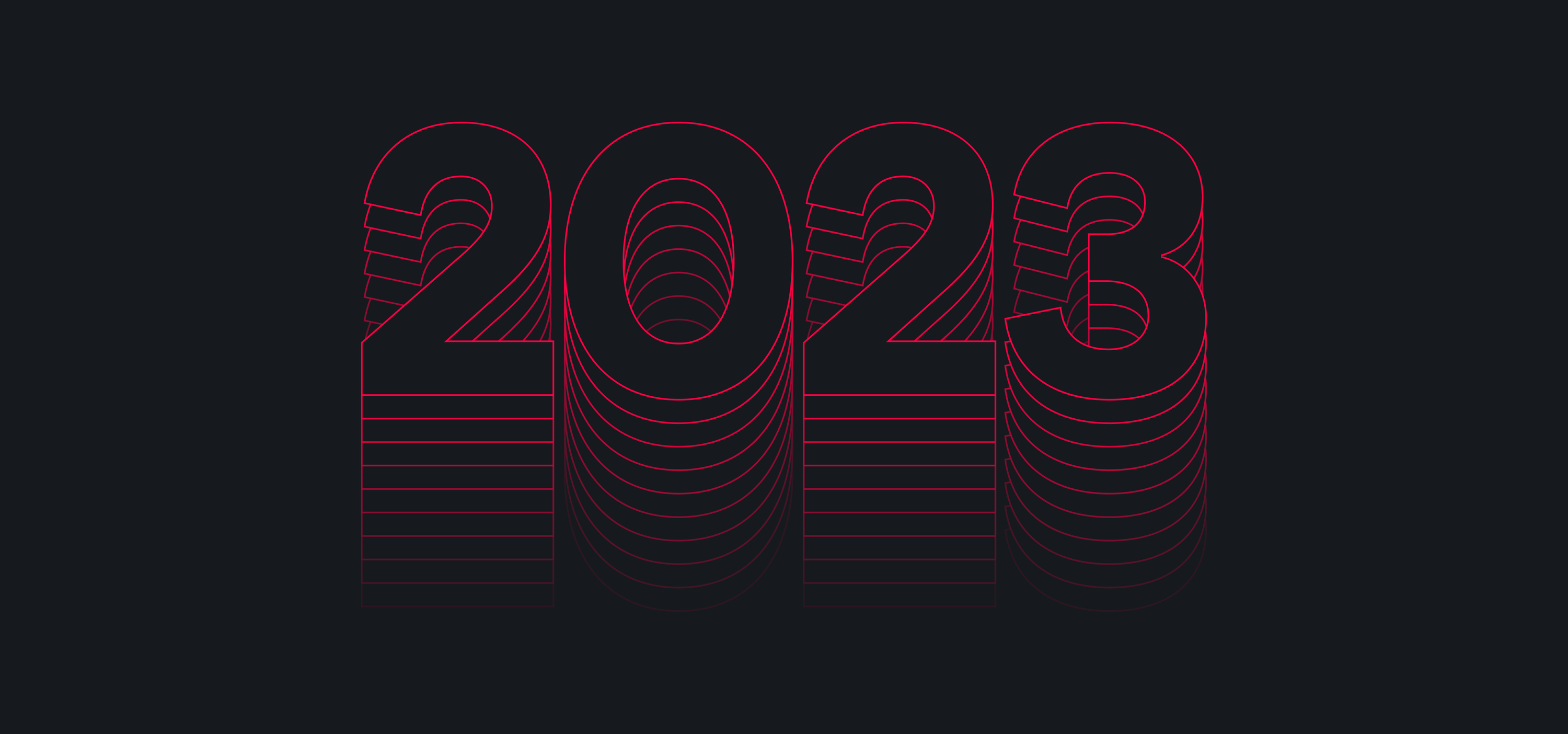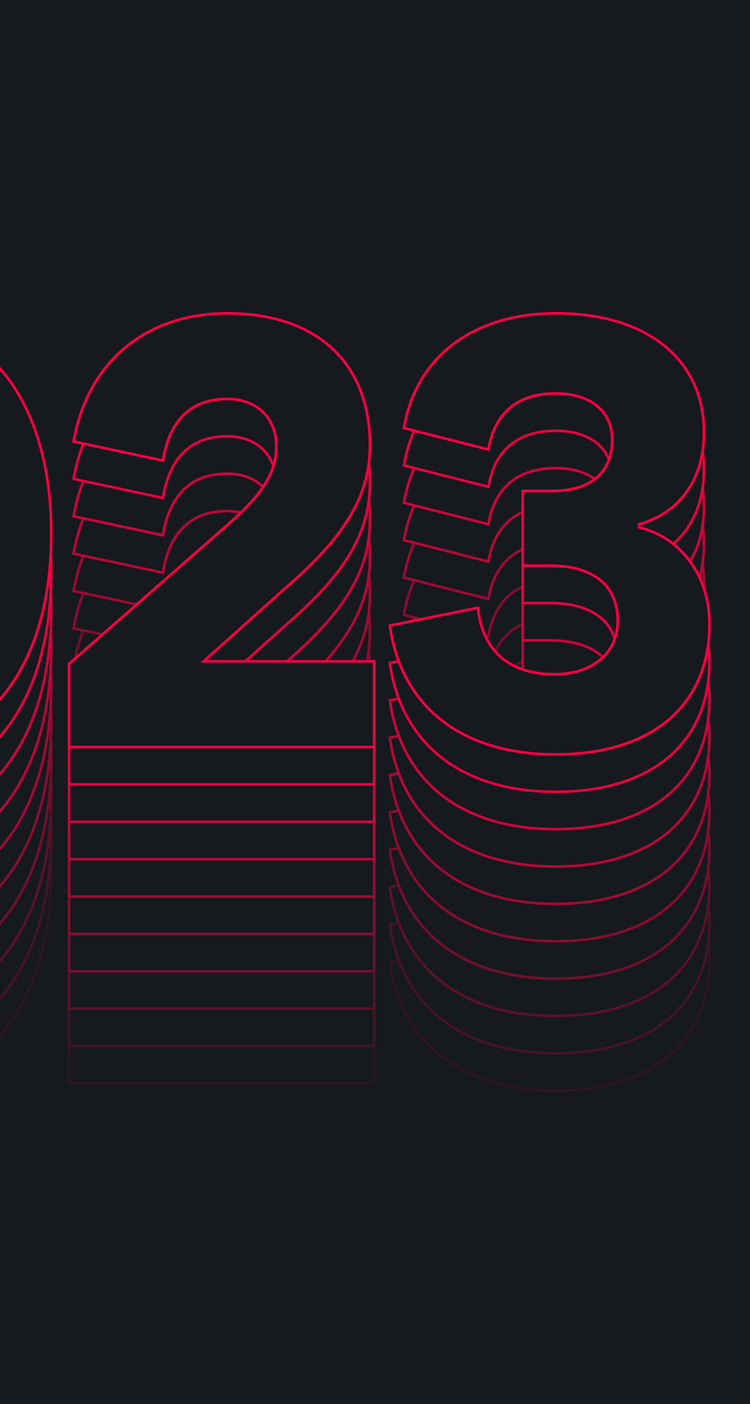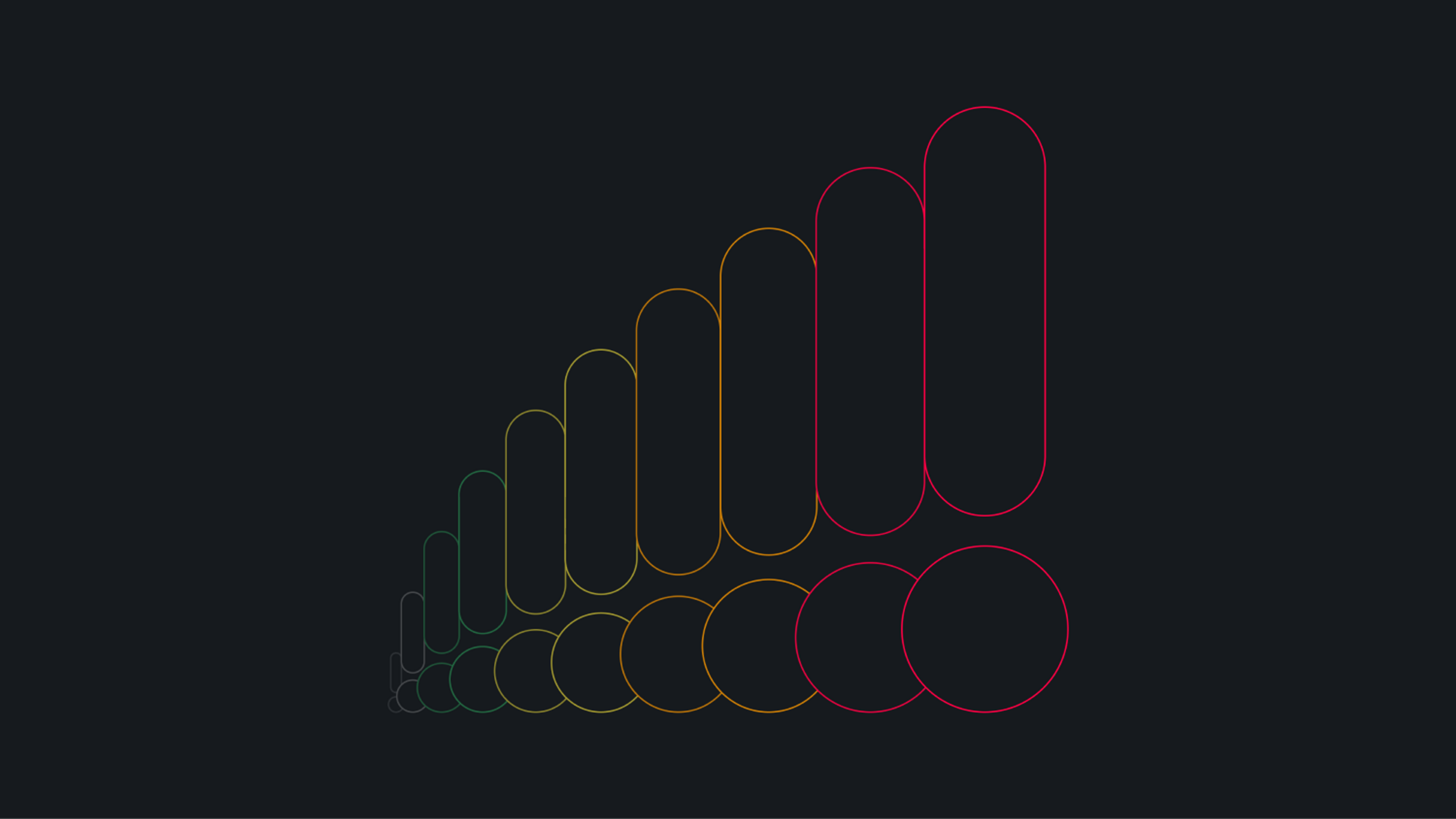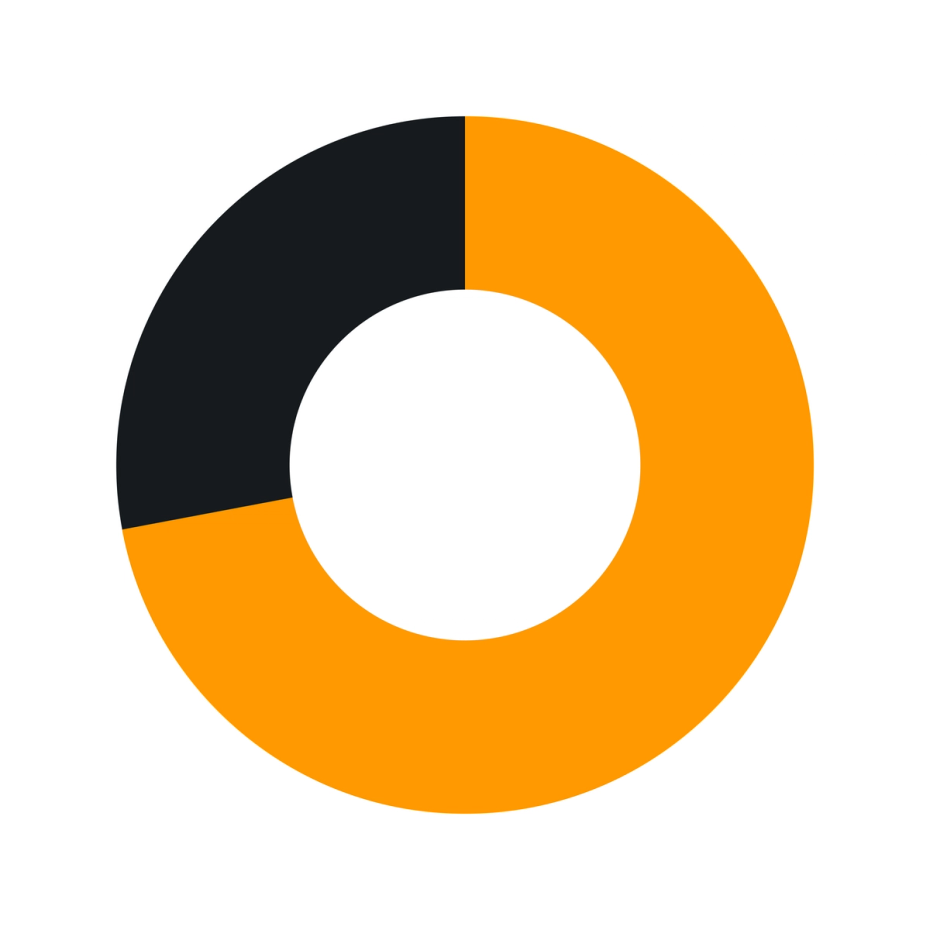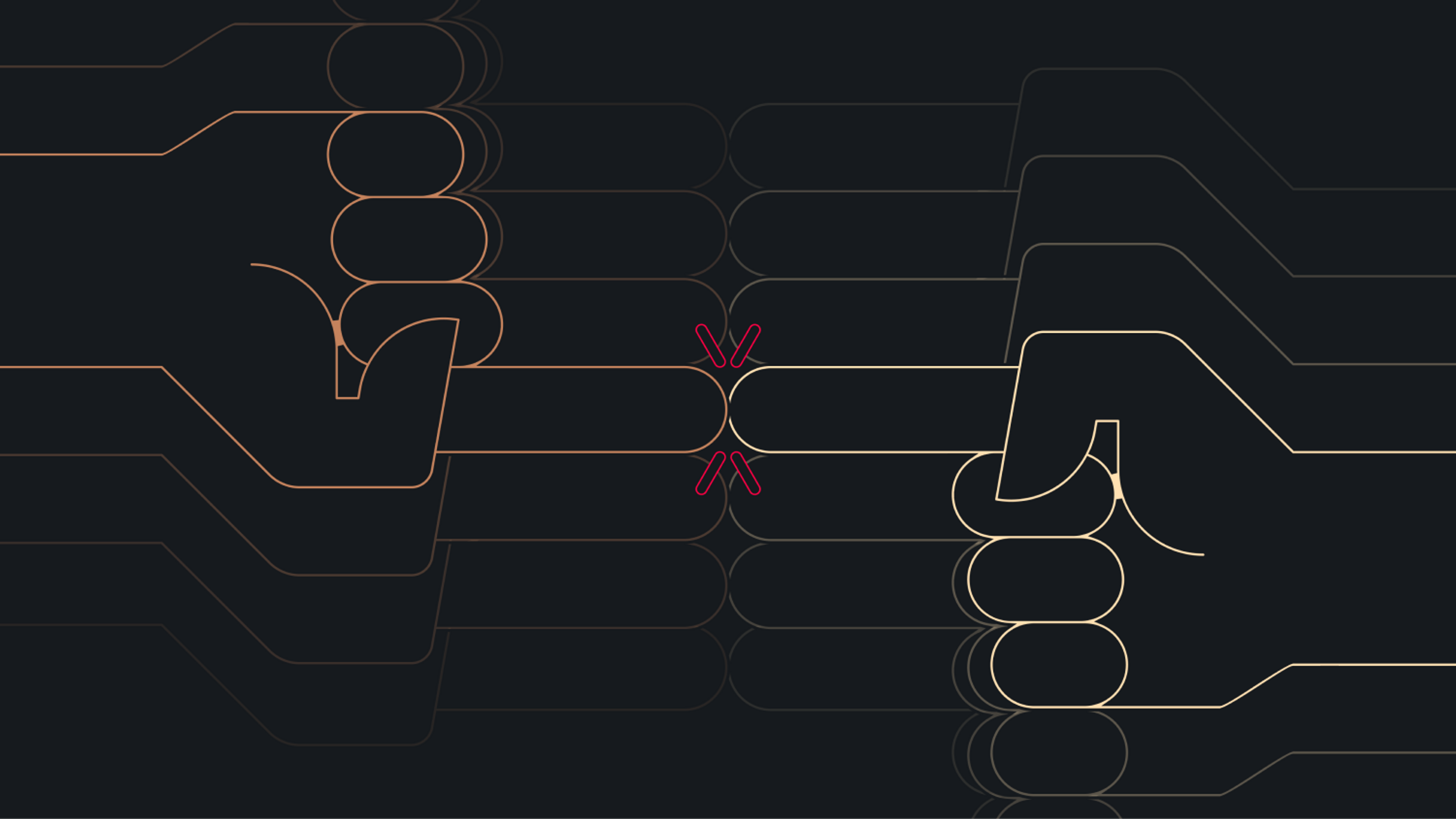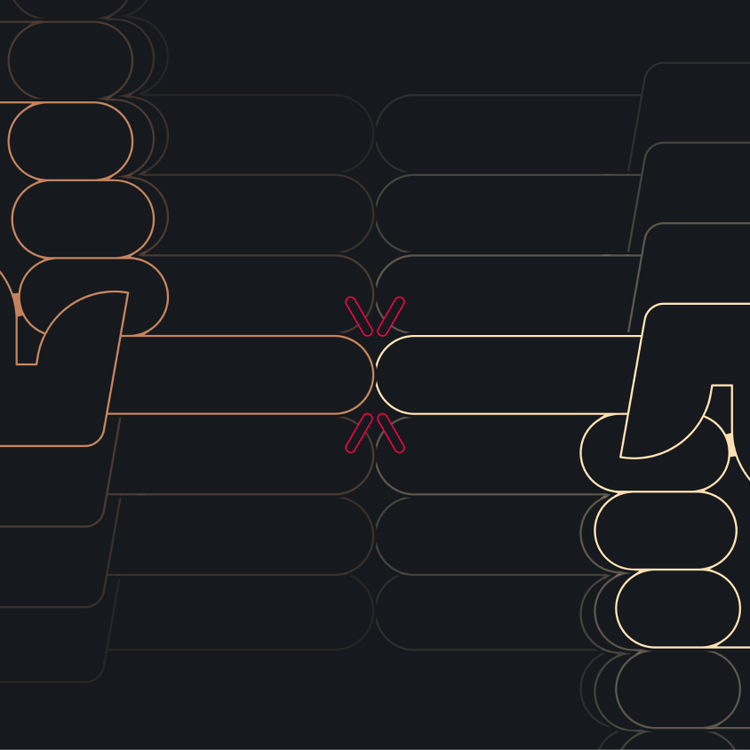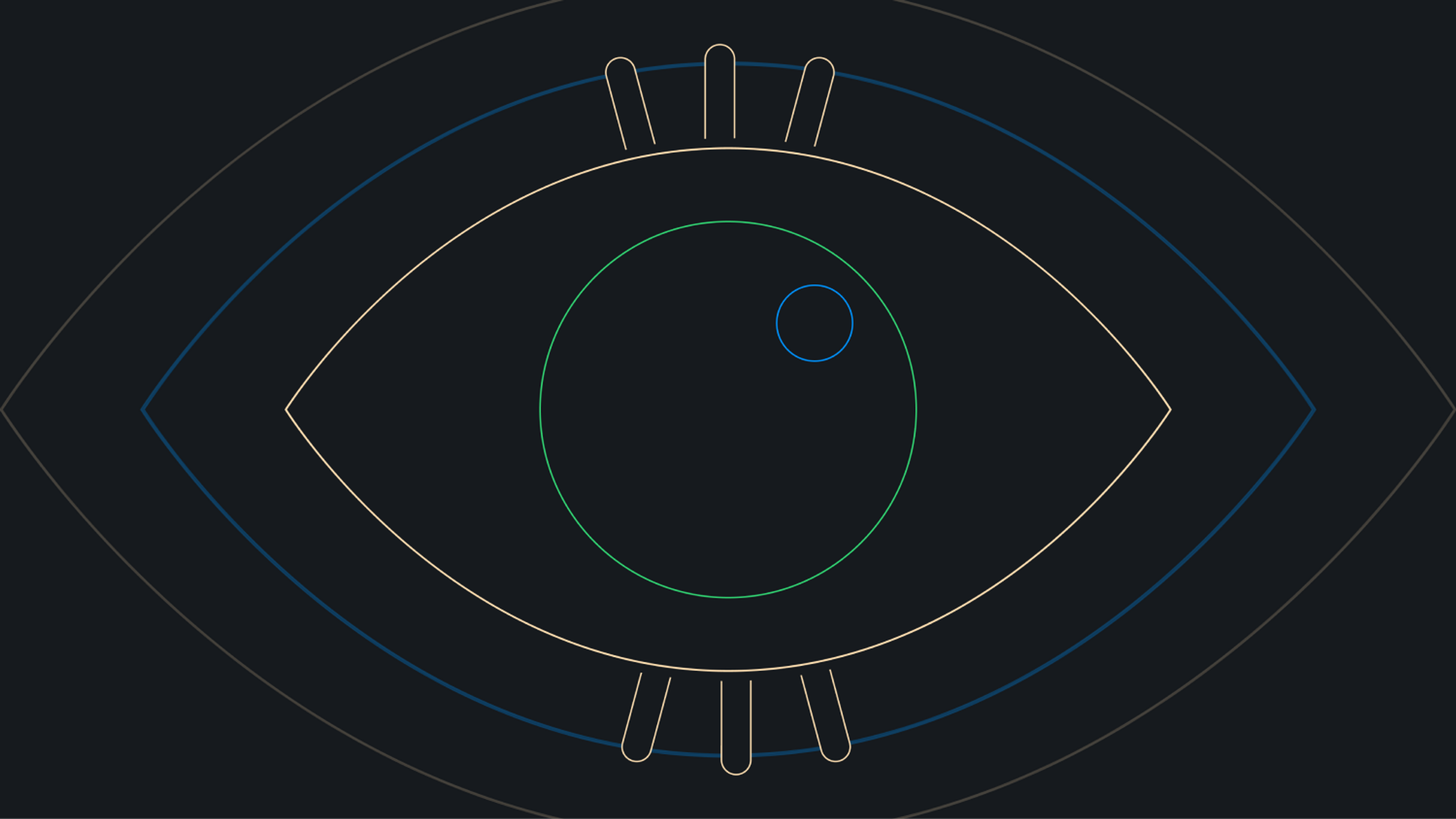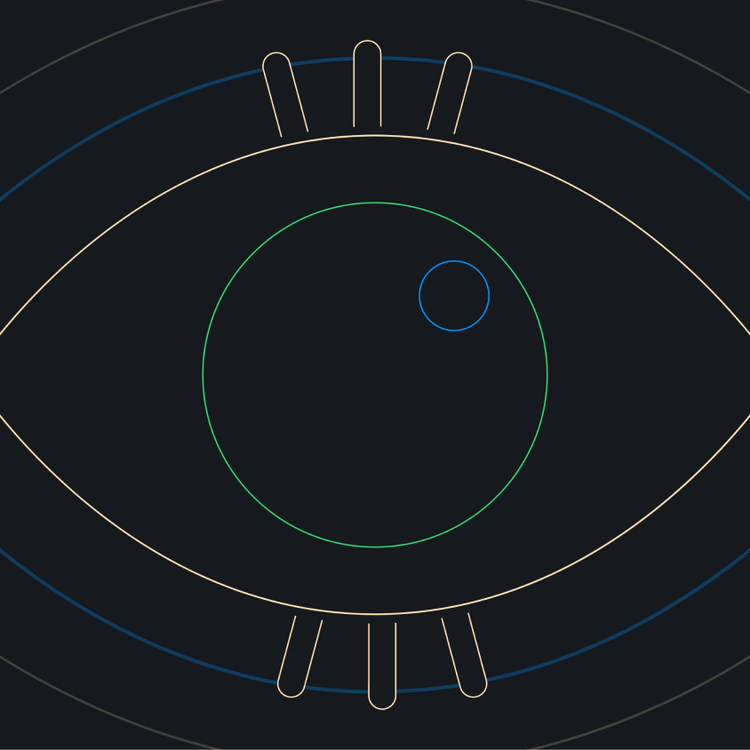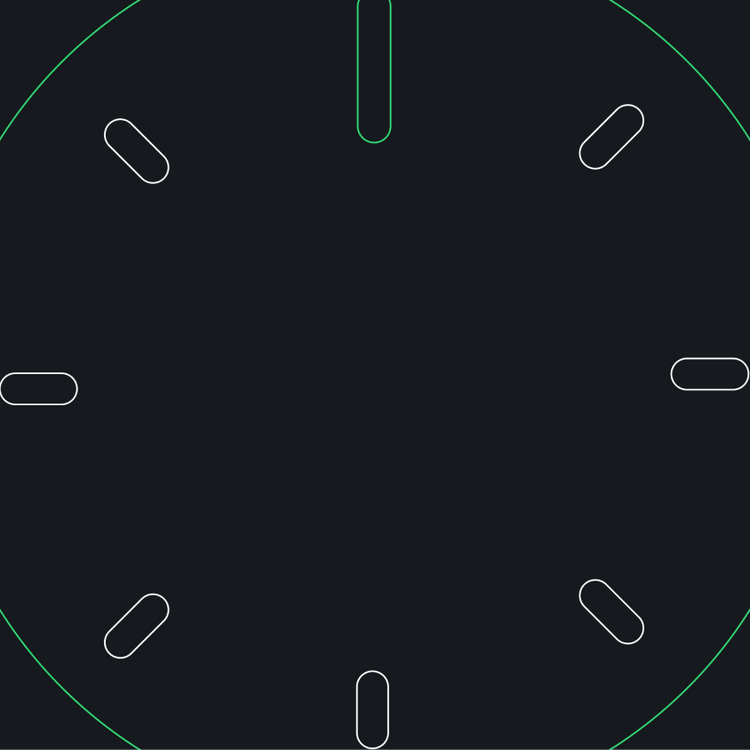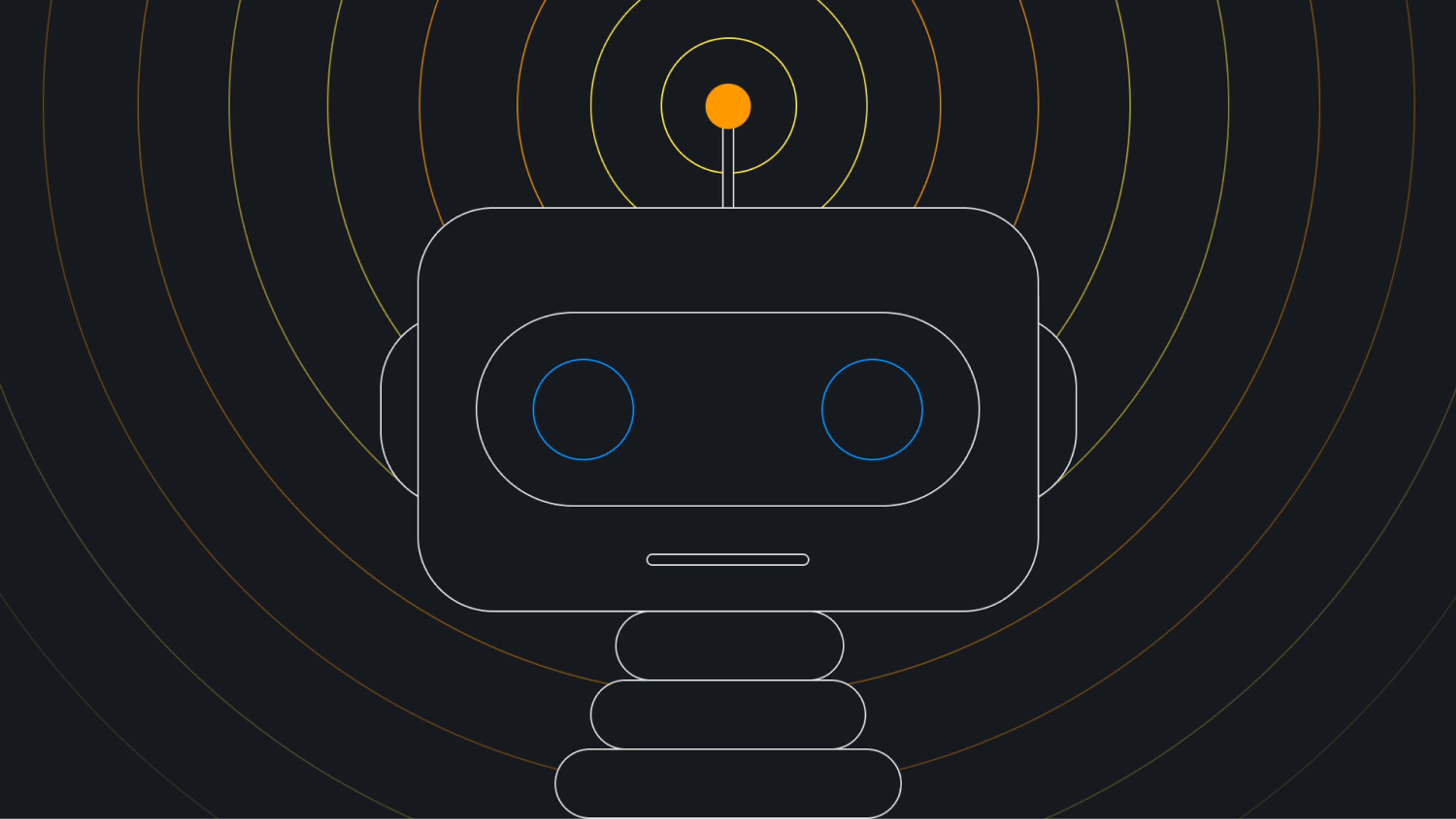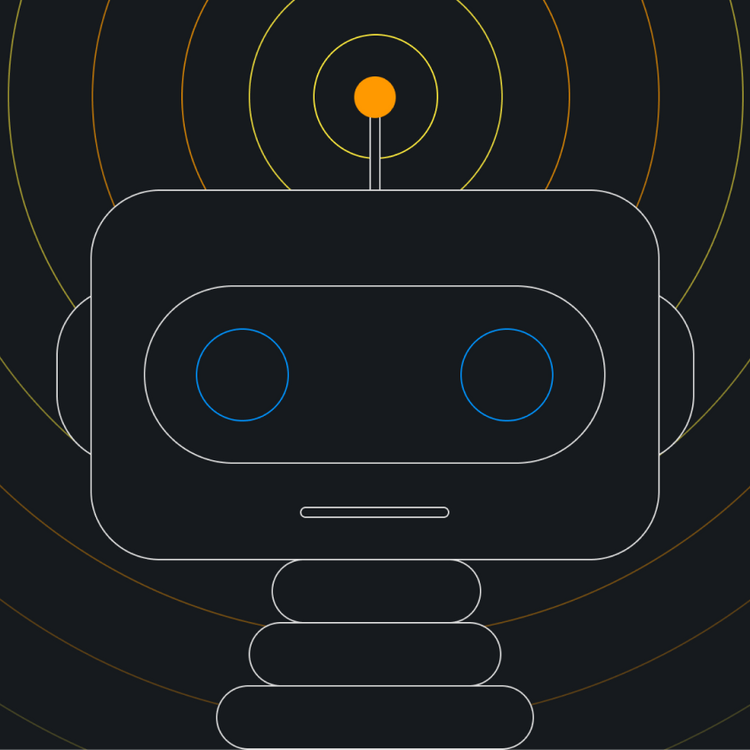Welcome to Cronofy’s third annual Candidate Expectations report!
Welcome to Cronofy’s third annual Candidate Expectations report! Each year we survey 6,500 candidates across the globe to understand their preferences and frustrations with the hiring journey. Our aim is to help recruiters improve their processes so they’re more efficient and provide a great candidate experience.
It’s been fascinating to see the changing behaviors of candidates over the past few years. It reflects the velocity of how the world is changing, with technology punctuating every part of our lives. It’s decreasing our attention spans, keeping us constantly entertained, and delivering results and answers faster than ever.
With a projected 20 to 50 million additional jobs created globally by 2030, even with the layoffs we’ve seen throughout the tech industry this year, it’s crucial to know what the candidate wants and expects from the hiring process to fill your roles.
Candidates deserve to have their time respected and feel valued – removing the burden of repetitive administrative tasks from recruiters frees them to focus where they can have the biggest impact.
TOP 3 KEY FINDINGS
40% would expect it to take no longer than 6 days after applying for a job to arrange an interview – up from 30.5% in 2021 and 33% in 2022
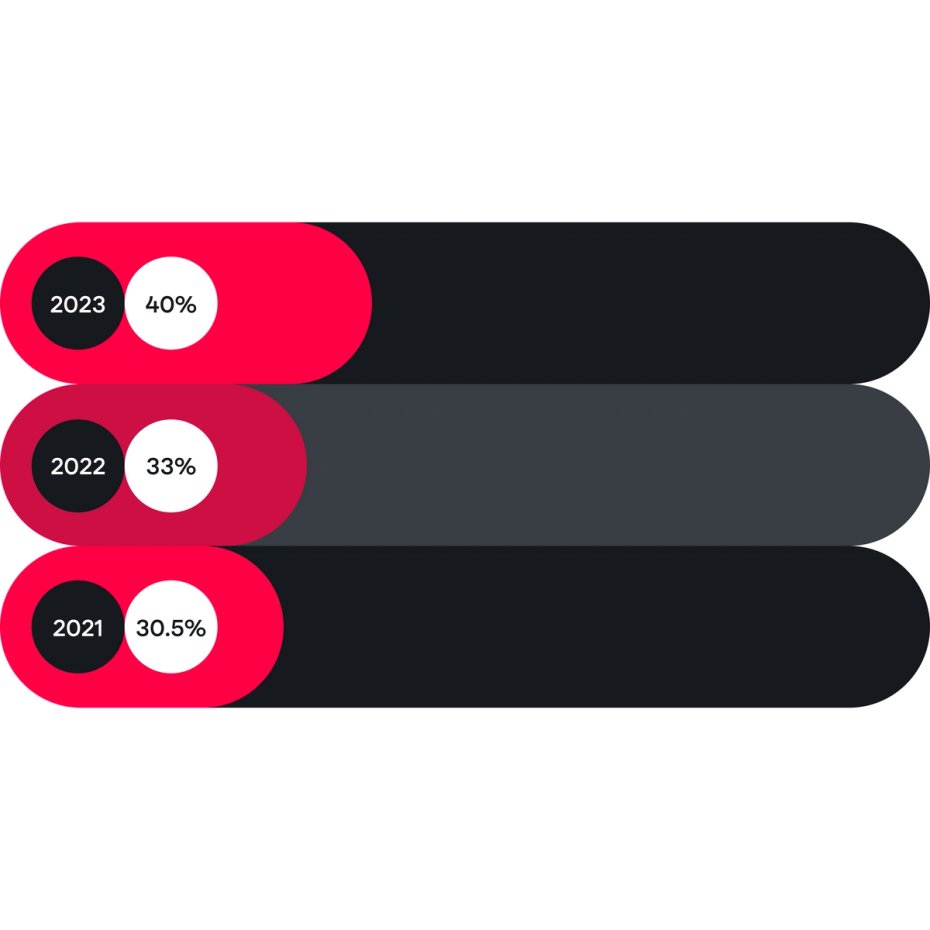
Responsiveness during the hiring process is most important for UK (52%) and US (56%) candidates – up from UK (43%) and US (47%) in 2021; and UK (40%) and US (55%) in 2022
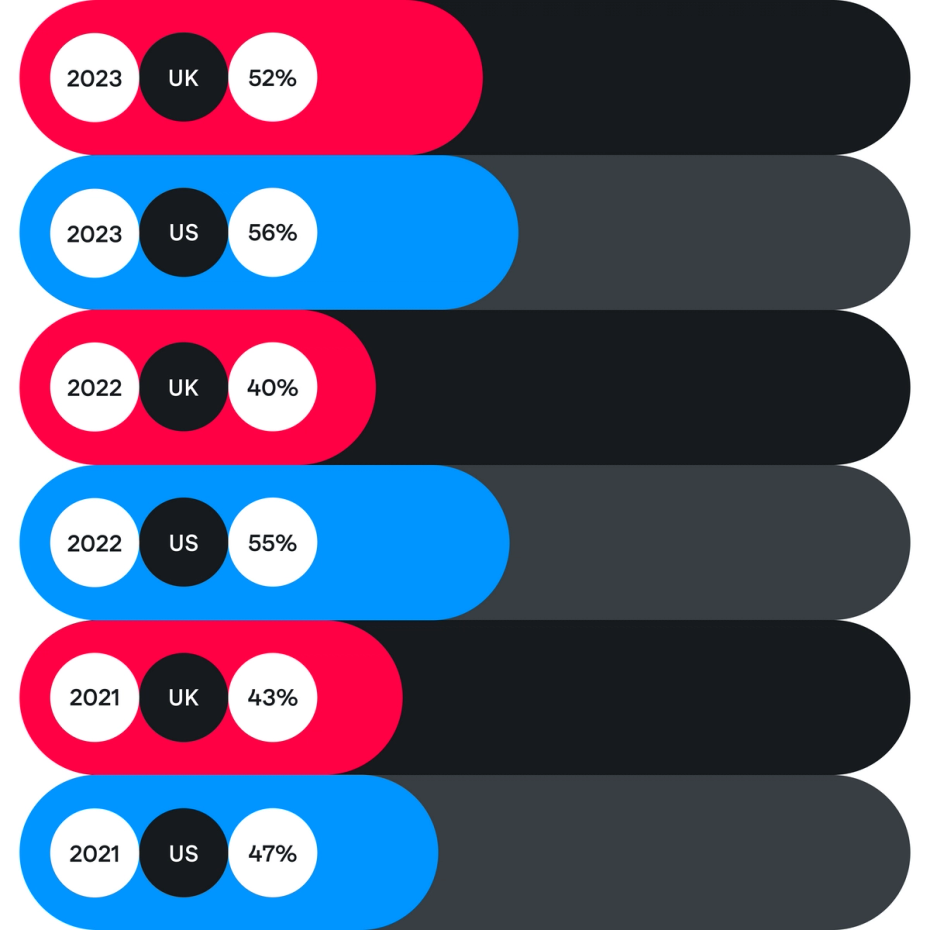
41% say lack of communication is the most frustrating part of the recruitment process – up from 24.75% in 2021 and 36% in 2022
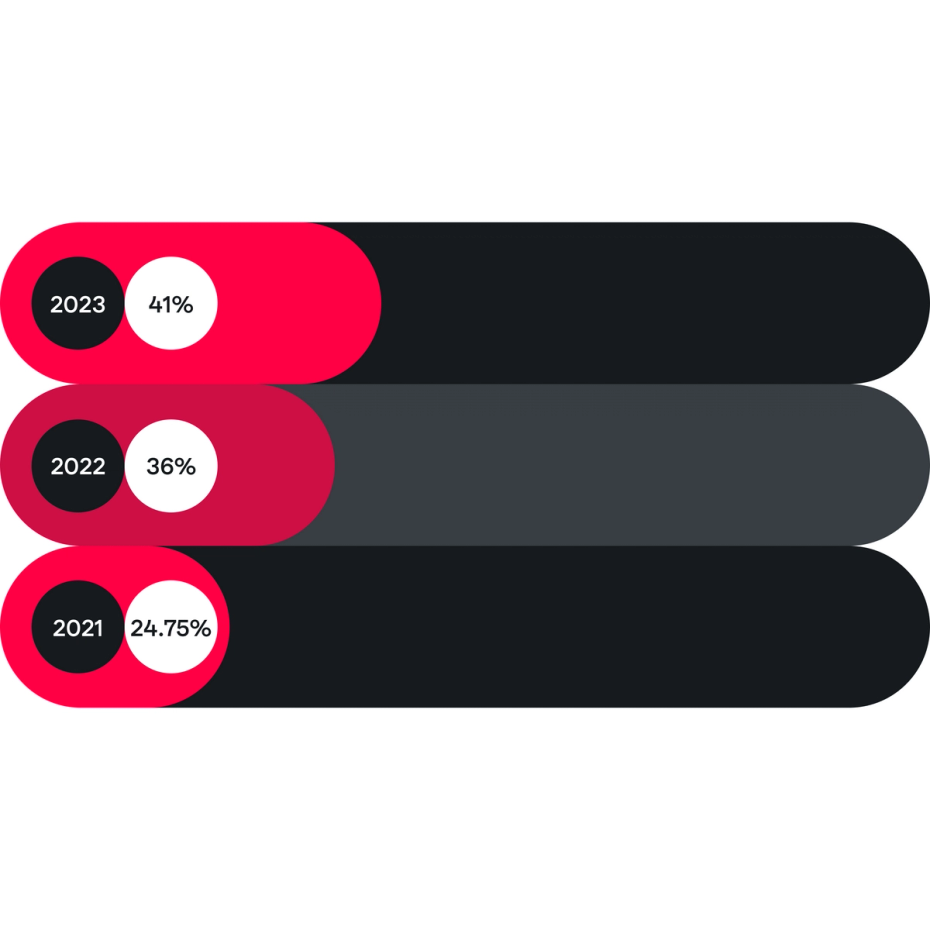
SHORTENING ATTENTION SPANS
8.25 seconds
It’s official – our attention spans have decreased to less than a goldfish. The average attention span is 8.25 seconds, which is 4.25 seconds less than in 2000. This is largely due to the social media and technology that surrounds us in our everyday lives. We constantly have something else to occupy our minds, and regularly feel distracted from our tasks.
This has had a clear impact on our patience within the recruitment process. Candidates expect responsiveness and to be taken through the hiring process quickly. Recruiters have to meet these demands if they want to catch the top talent for their open roles. This is only set to get worse – Generation Z doesn’t just have a shorter attention span; they also juggle more screens. On average, millennials bounce between 3 screens at a time while Gen Z juggle 5! It’s more difficult than ever to keep people’s attention, so Recruiters need to be fast to ensure candidates don't lose interest.
49% left the recruitment process when it took too long to schedule an interview, compared to 38% last year

40% would expect it to take 2-6 days after applying to arrange an interview
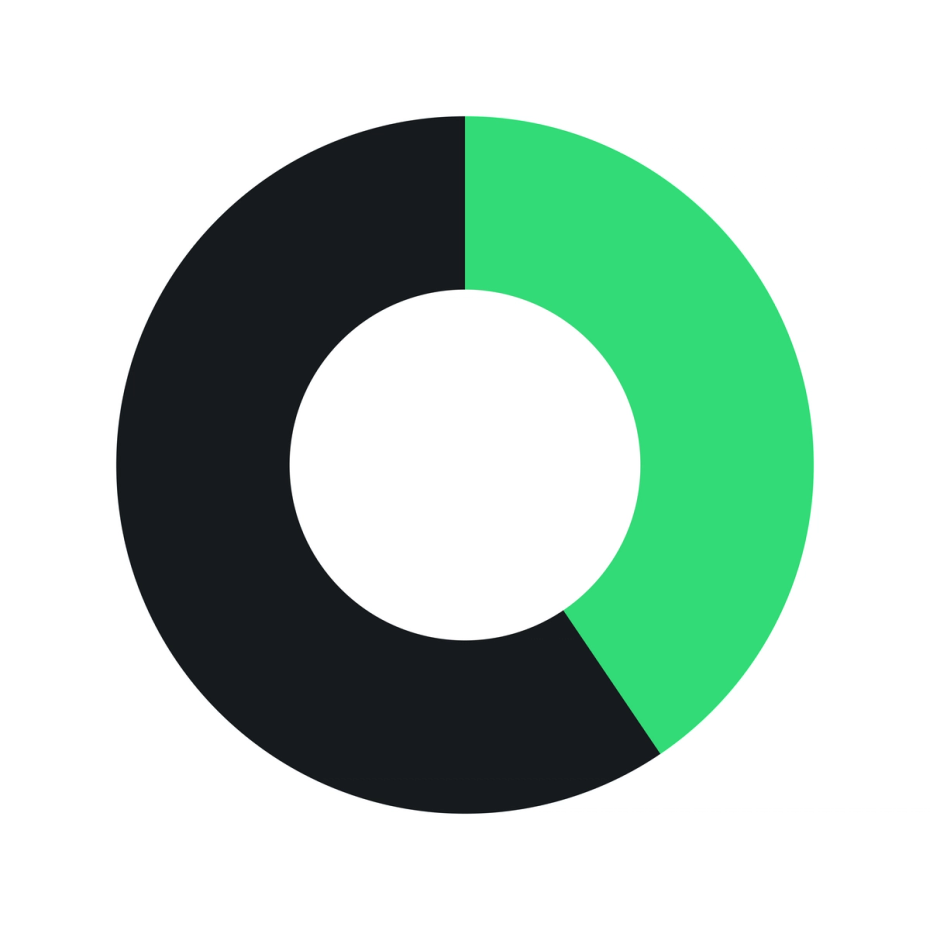
14% of people working in IT would disengage from an interview scheduling process if it took longer than 2 days

EVERYTHING NOW CULTURE
Demanding Americans
Respondents in the USA were particularly impatient, within the 18-34 age bracket even more so. The US is known for it’s “everything now” culture of instant gratification, with the population regularly receiving a bombardment of ads and marketing messages. This has had a profound impact on their levels of patience. A study from Fifth Third found 96% of Americans are so impatient that they would knowingly consume extremely hot food or drink that burns their mouth! This reflects in their behavior during the hiring process – levels of patience tend to run low and they value speed and responsiveness over all else.
67% of candidates in the US would wait no longer than 6 days for an interview, compared with 53% in Germany, 52% in the UK and 52% in France
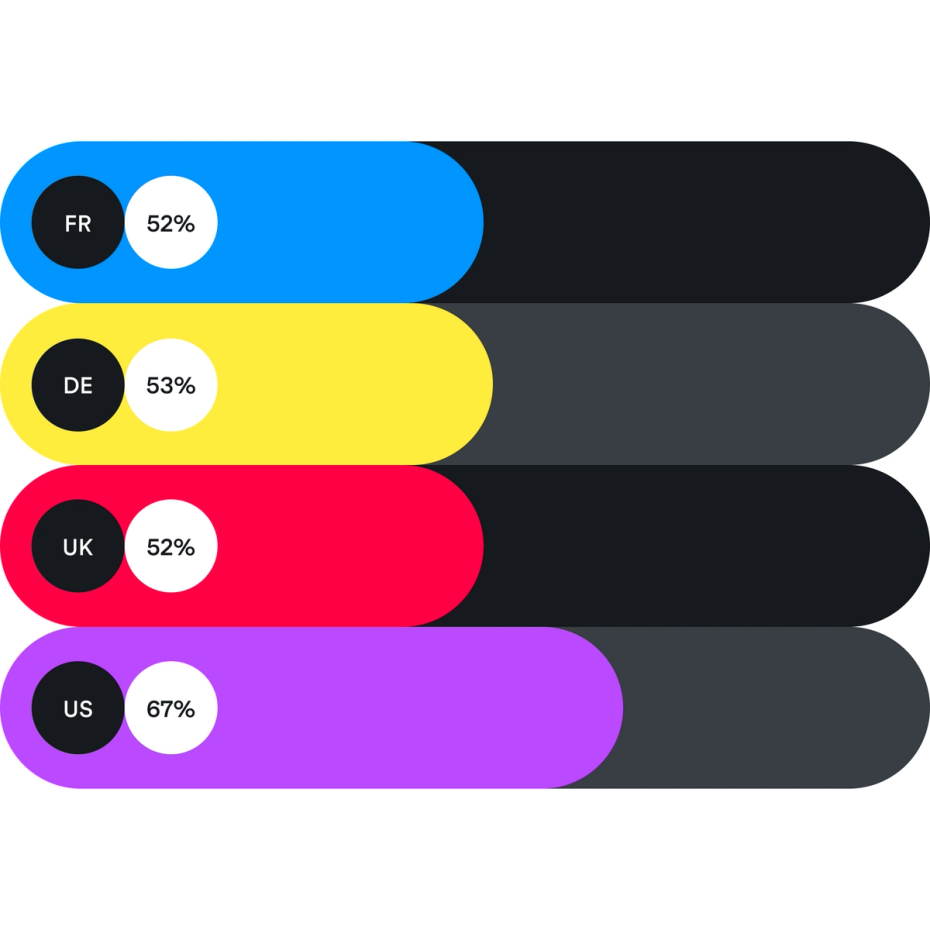
81% of senior candidates would wait no longer than a week to schedule an interview
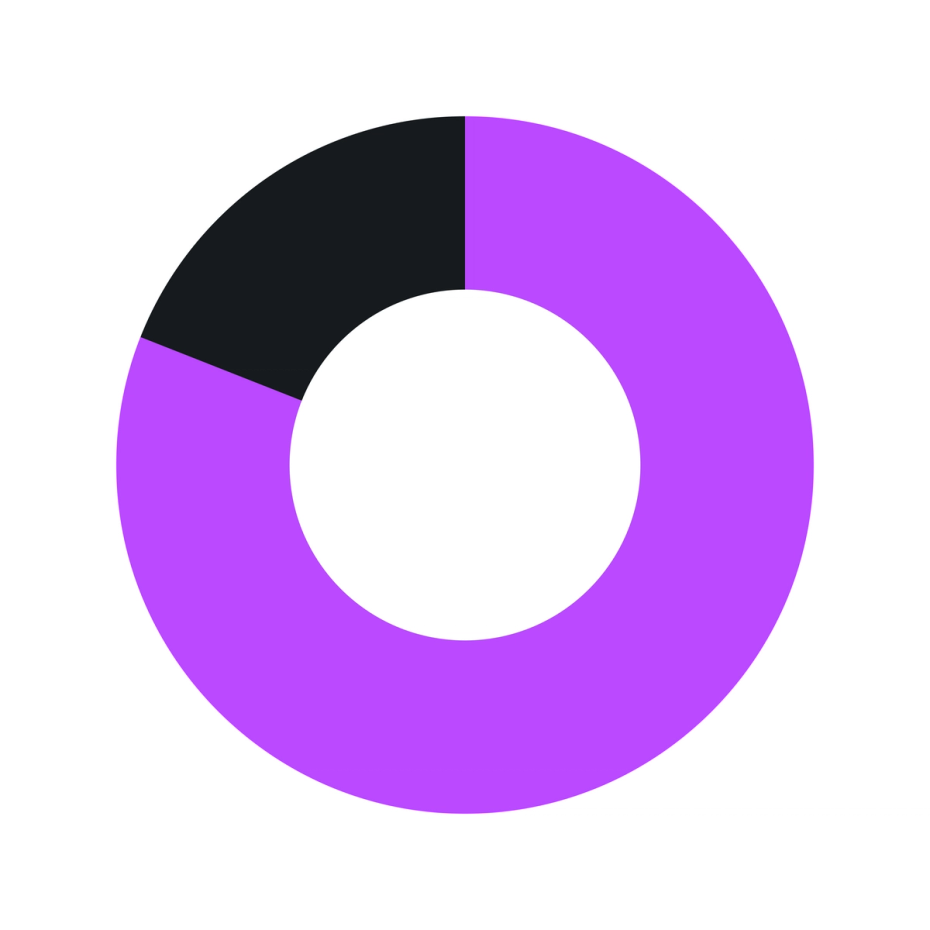
86% in the 18-34 age bracket in the US would wait no longer than a week to schedule an interview, 81% overall

POST-PANDEMIC
Connection with others
Even with the amount of technology that can automate tasks for us, we still crave that human connection in our lives. This was exacerbated by the pandemic, and made us realize the importance of connection with others. We’re in the midst of a loneliness epidemic – 30% of adults reported feeling lonely in a recent survey. Technology is great but it can’t replace the value of building relationships with people. It needs to be balanced in terms of automating what should be automated while maintaining human connection. This is especially true in recruitment, after all recruitment is a relationship and people-focused role. The only things that should be automated are those administrative tasks like interview scheduling that get in the way of giving more time to relationship building and sourcing.
54% in France say human touch is the most important factor during the recruitment process, compared with 53% in Germany, 29% in the UK, and just 18% in the US
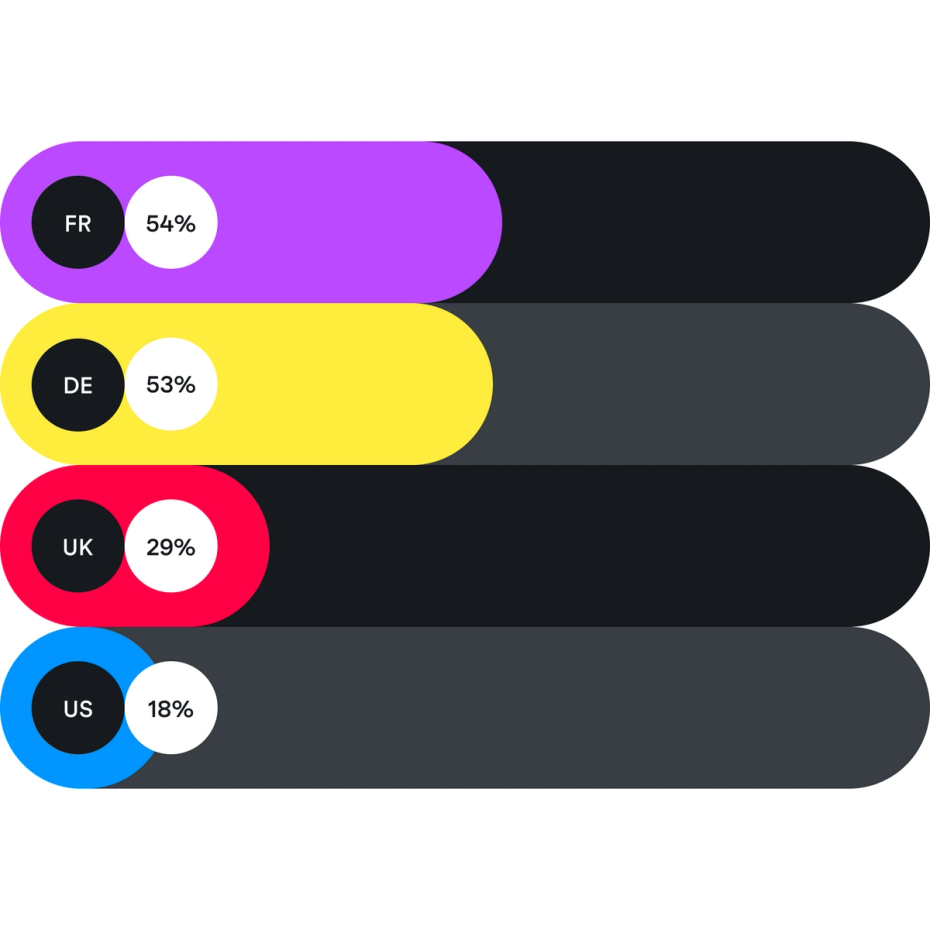
81% agree that a human touch point is still important during the hiring process. This rises to 90% when looking at the 55+ age bracket

70% said their interviews had been conducted face-to-face

COMPANY CULTURE VULTURES
Part of something more
It’s not enough for employers to just offer money anymore – candidates want much more than that. They want to be bought into the company culture, and feel they are part of something they can be proud of. They want to be valued and for their time to be respected. This is especially prominent within the younger generation, they expect a strong company brand that reflects their ethos. A recent study found that around 32% of job seekers might consider a job with lower pay if the employer had positive company culture elements.
The interview scheduling process is part of this. If it’s slow and haphazard, that signals a disorganized business that doesn’t care about its employees' time or experience. The importance of this can’t be underestimated. According to research by Brandon Hall Group, a good hiring process increases the retention rate in a workplace by up to 82% and saves you the extra costs of scouting for new hires.
73% of candidates in the 18-34 age bracket say the experience of scheduling an interview affects their perception of an employer, compared with 65% in the 35-54 age bracket and 60% in the 55+ age bracket
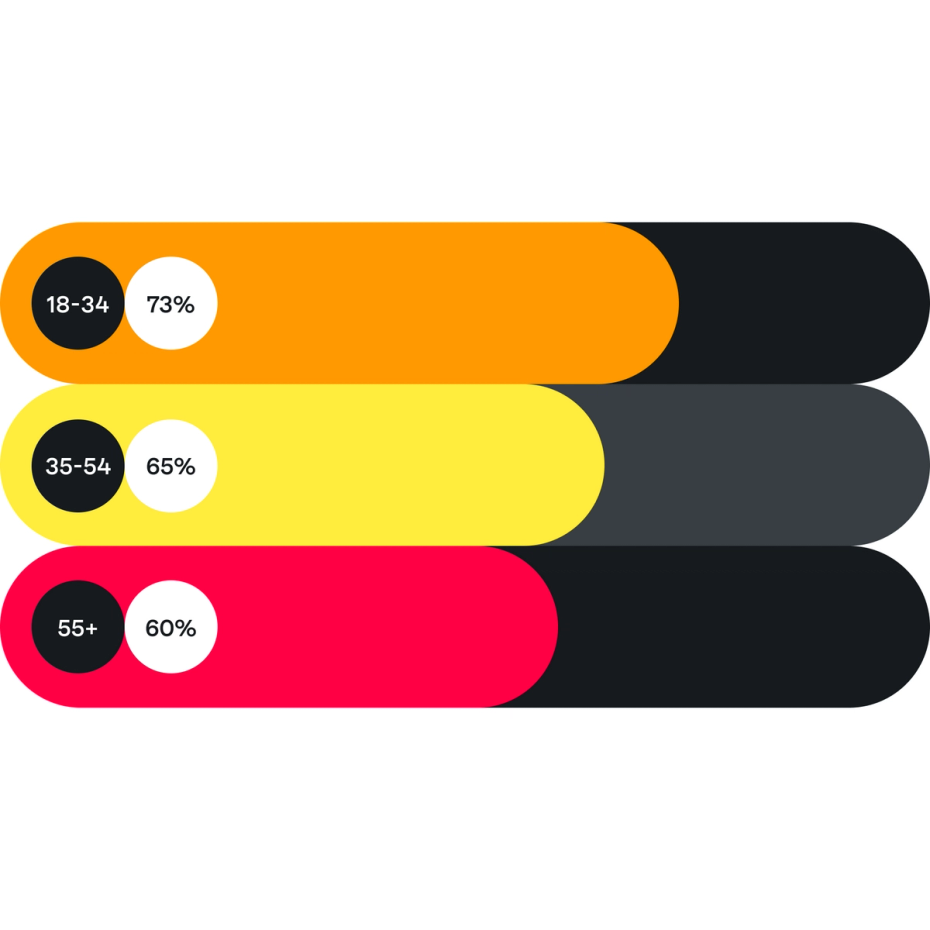
57% of respondents in the 18-34 age bracket said they would be less likely to recommend or engage with an employer in future if their interview scheduling process was slow
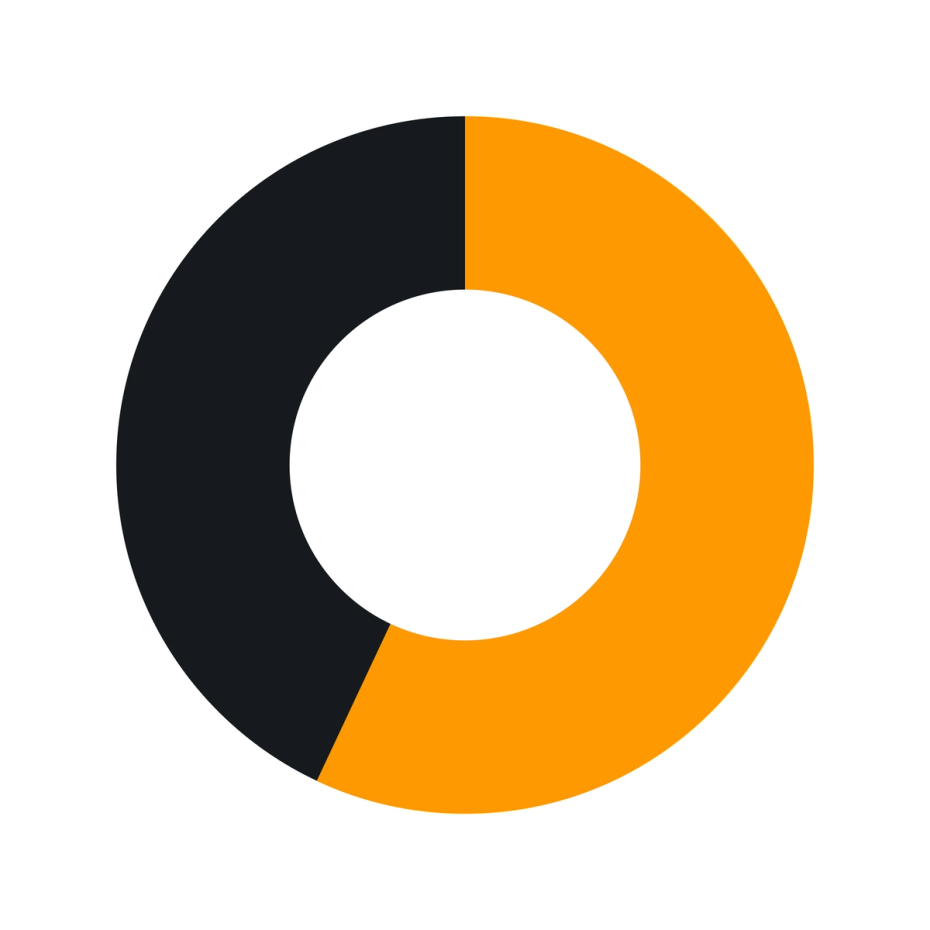
Nearly a third said a slow interview process would make them believe that the employer doesn’t care about their candidates and that they had an insufficient HR function/team
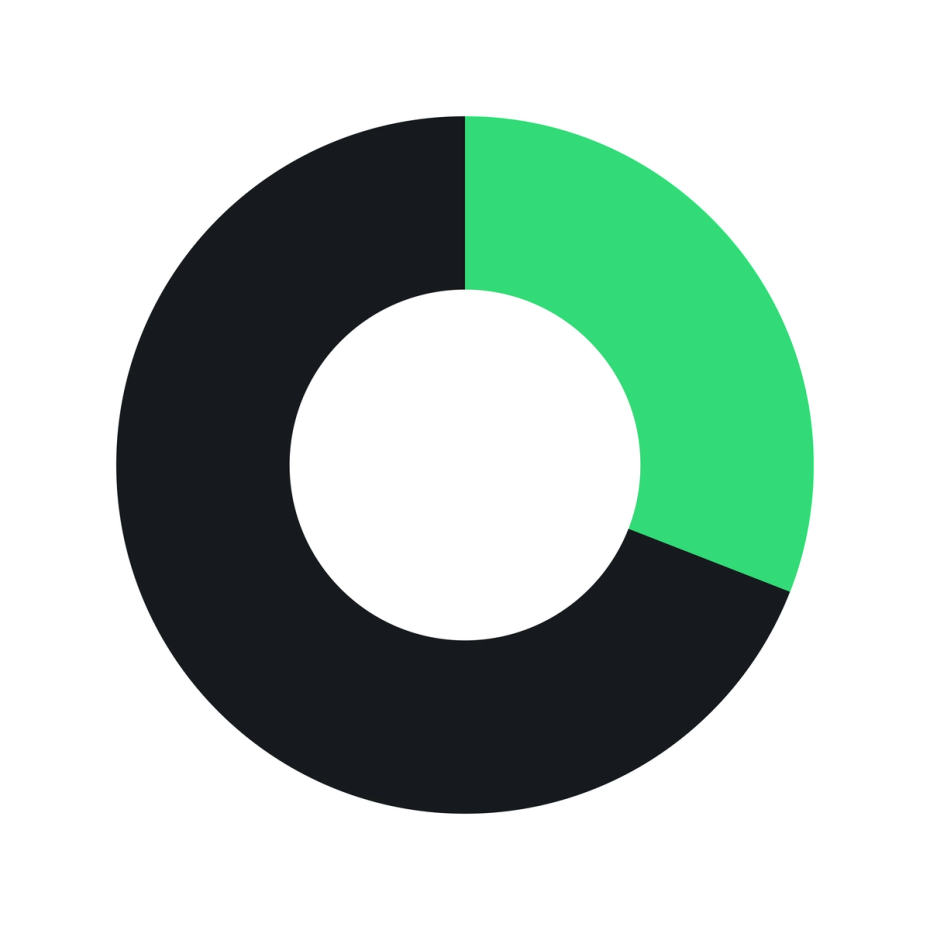
EMPLOYER BRAND
Something to be proud of
The most common result of a bad interview scheduling process was telling friends and family about the experience. Don’t underestimate the power of word of mouth, even in this digital age, people are looking for trusted sources more than ever. They want advice from real people. Naturally the people you trust most are friends and family.
Having a poor hiring experience has a lasting effect on your brand and therefore the likelihood people will apply for your jobs. It’s all a reflection on your business as a whole, so it’s important to get it right and make the best first impression or the impact can be detrimental.
67% of candidates in the media and marketing field wouldn't recommend or engage with a company in future if there were scheduling delays, compared with 49% in the facilities/cleaning industry
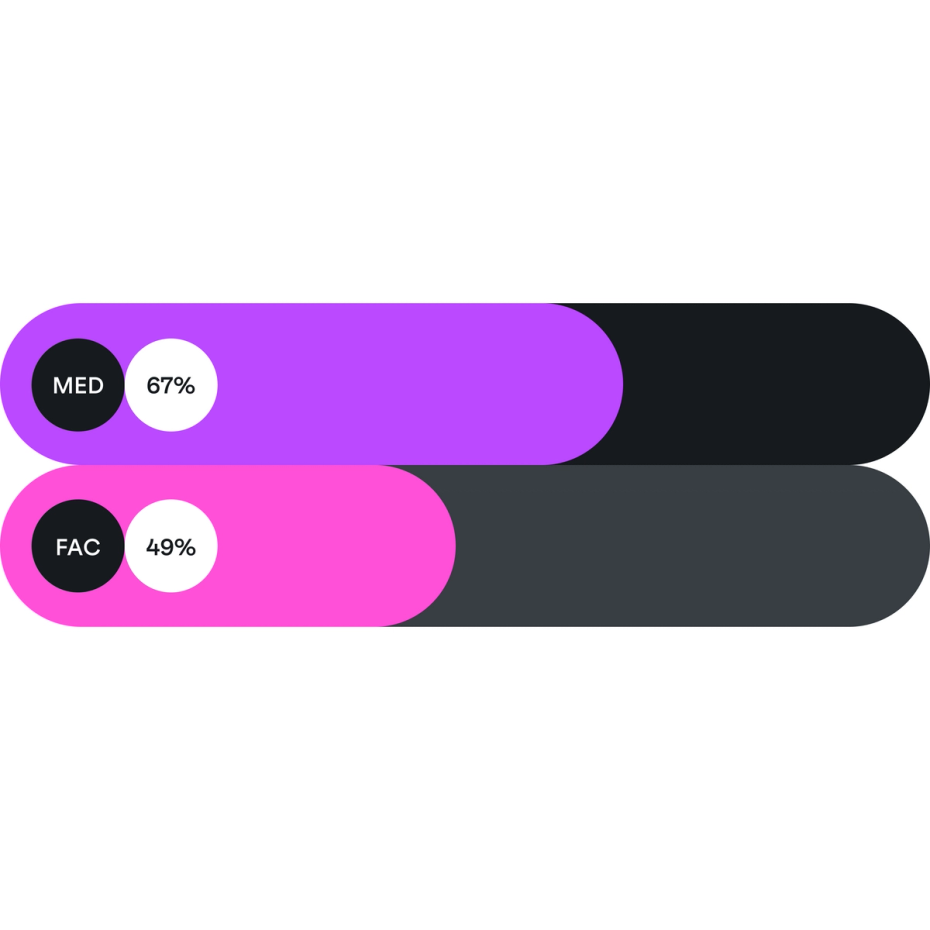
GENERATIVE AI GENERATION
Key for success
In a world of generative AI, personalization is key for success for any business. It’s being seen more and more in marketing, and for good reason; 70% of consumers say they’re more likely to be a loyal customer or increase their purchase rates when brands build personal relationships with them.
It’s also crucial for relationship building, which is the name of the game in recruitment. It makes candidates feel seen and heard.
66% agree there should be more focus on the candidate rather than the company

41% said poor communication was said the most frustrating thing during the recruitment process
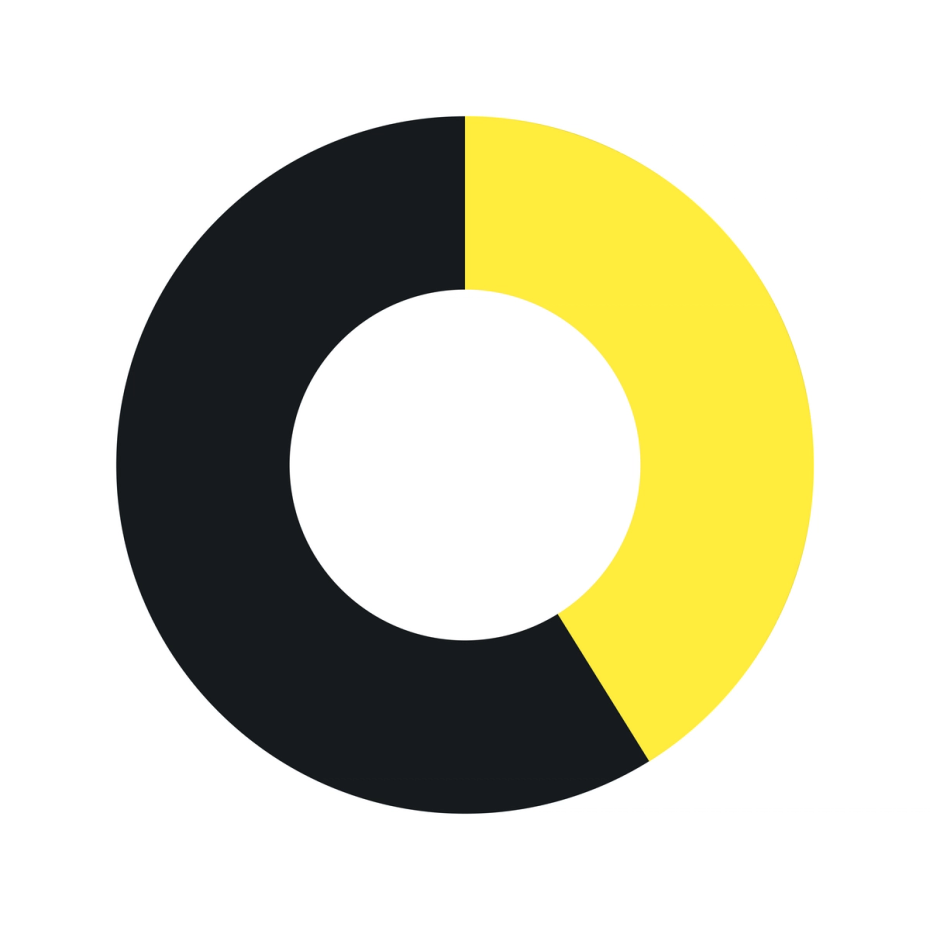
STRESS-INDUCING TIMES
State of anxiety
We’re living in an understandably stress-inducing time, with cost of living crisis, recession, and inflation being an inescapable reality. It appears to be leaving us in a state of anxiety that’s having an impact on all parts of our lives including the hiring process. More than one in four (26%) reported they anticipated experiencing more stress at the start of 2023, up from one in five (20%) last year. This is particularly prevalent among women, young millenials and Gen Z. Burnout from workplace stress is at an all-time high since Spring 2021.
These younger generations feel they have less control or stability in their careers, so want to feel reassured throughout the recruitment process.
The rising stress can also be put down to the massive layoffs we’ve seen within the past year – nearly 170,000 tech employees globally were let go in 2023. However the candidate shortage in tech persists, showing that despite the layoffs and hiring freezes, the global economy remains on the hunt for top tech candidates.
46% said delayed interview scheduling affected anxiety levels compared with 38% last year
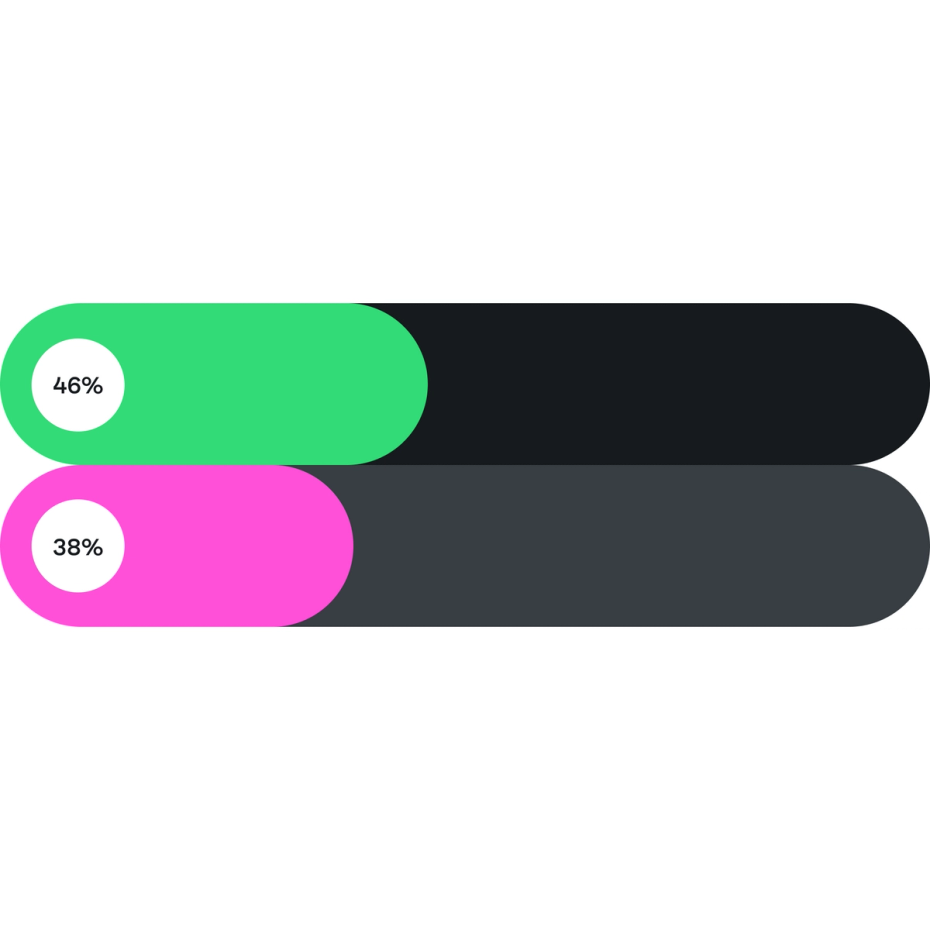
BURNING OUT
The gender gap
Women have reported higher levels of burnout than men for years, a gap that has more than doubled since 2019, Gallup reports. The explanation for this widening gap can be boiled down to gender inequities: Research has found that women are less likely to be promoted than men yet more likely to head single-parent families and take on unpaid labor – all things that can exacerbate burnout. The worsening child-care crisis is another factor causing more stress and frustration for women.
40% of female respondents said interview delays had a negative impact on their stress levels, compared with 31% of males. 36% overall
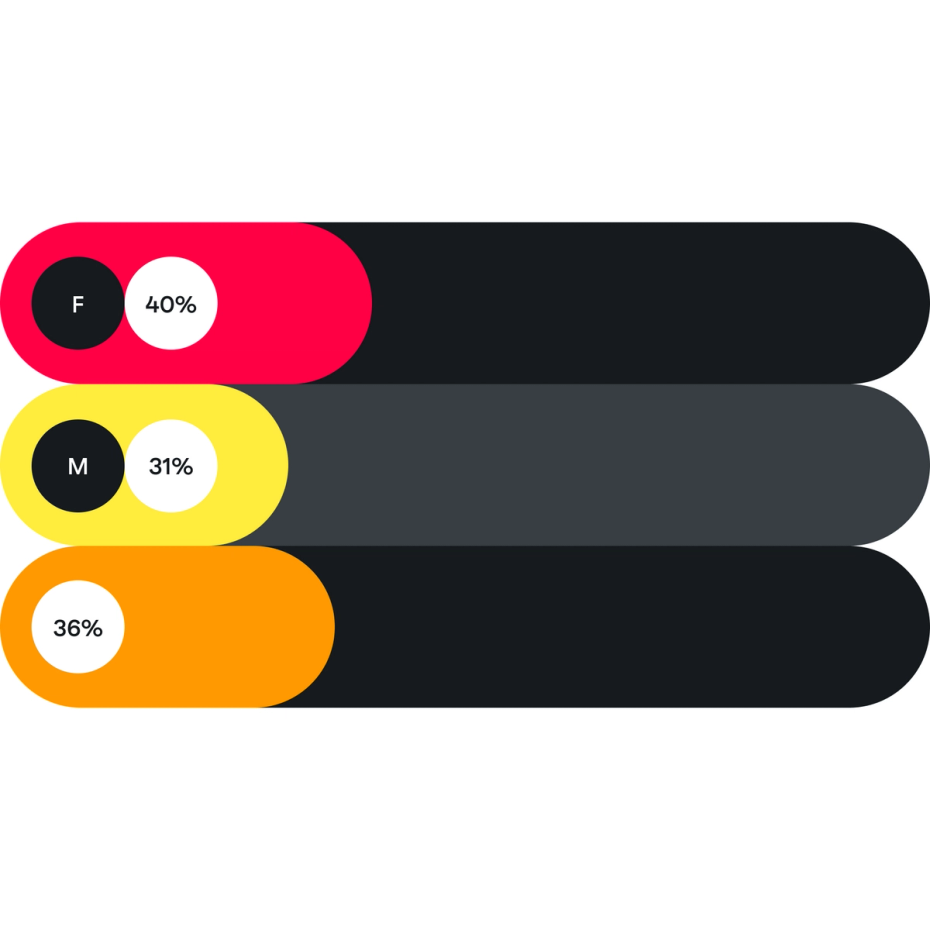
AUTOMATION IS EVERYWHERE
Heightened expectations
During the pandemic use of automation and digital platforms rose astronomically, obviously due to the increased reliance on this technology to keep businesses afloat through lockdown. This has had an irreversible impact on society as a whole. Automation is everywhere, and continues to grow – the smart home automation market is expected to grow by more than 27% annually through at least 2030. As it’s so prevalent, naturally people have begun to expect more of it from businesses.
62% would prefer an automated system that manages the interview process efficiently rather than lengthy back-and-forth communication. Yet email (45%) and telephone (44%) are still the most common ways to schedule an interview.
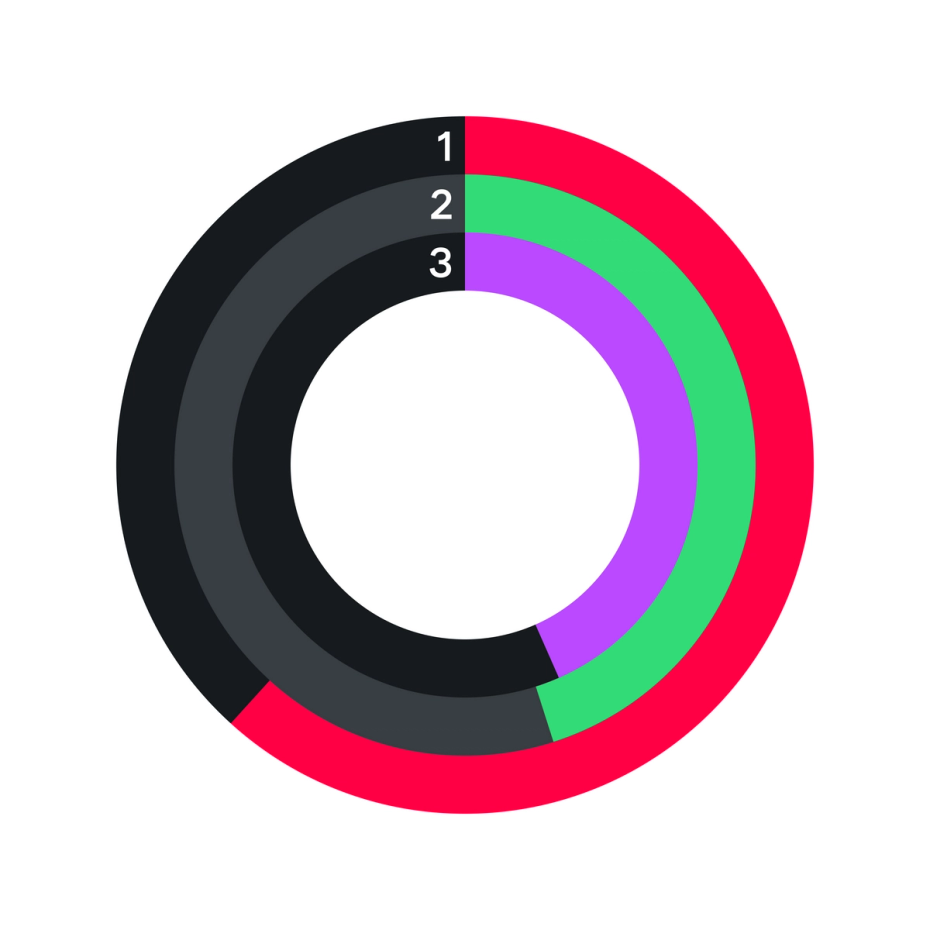
70% of respondents in the UK agree that the switch to a more virtual world during the pandemic has led them to expect more from business’s technology throughout the hiring process

Booming hiring market
The number of respondents that most wanted to see automation in the interview scheduling part of the hiring process increased from 30% to 35% in management roles. Clearly managers are realizing the detrimental impact slow manual interview scheduling has on their team’s productivity, and are looking for ways to build more high-performance teams.
Region-wise, the USA wants interview scheduling automation the most, especially Junior staff (45%). This may reflect that they want to spend more time building other skills that can see them progress rather than spend too much time on administrative tasks, as they’ll likely want to capitalize on the current booming hiring market.
IMPACT AND RECOMMENDATIONS
Key takeaways
- Recruiters need to be fast – speed is everything in a time of growing impatience and decreasing attention spans, in large due to the technological age and social media
- Candidates want to be bought into your brand and company culture, especially the younger generation – the interview scheduling process is a reflection of your whole company
- Stress and anxiety is rising, especially among the younger generations and women – a slow or haphazard hiring process can amplify these negative emotions and lose you talent
- The recruitment industry is highly competitive and the way to get ahead is to move quickly. Automation enables recruiters to save precious time and speed up the hiring process
- Although there is a lot of helpful technology for recruiters to use, they should never sacrifice human connection. Use technology to free up more time for you to source the best candidates and to build relationships
- It’s about making the process as smooth and fast as possible while showing consideration for the candidate
- Automation continues to grow in prevalence, and subsequently candidates expect more from an employer's technology stack – you need to adapt to catch the best talent
- Personalization is key – people want to feel individual in a time of generative AI
Final insights
The growth of generative AI has had a profound impact on candidates' behaviors this year. Personalization is something we’re seeing across the board in terms of marketing and communications and this has translated into recruitment. People want to feel like they are seen as an individual. Part of this is having their time respected, so fast interview scheduling with clear communication throughout the hiring process is crucial.
Candidates expect more from employers' technology, but still want the human connection to be intact. Recruiters need to ensure they’re not sacrificing one for the other, and instead use technology to enhance their process and provide them with more time to build human relationships.
We’ve identified a range of factors that cause frustration for the candidate, and it’s clear that interview scheduling needs to be prioritized.
